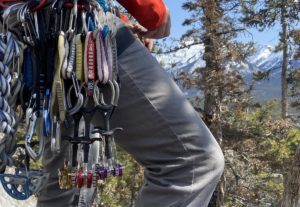Olympic Podium Preview: Men’s Climbing
The Men's field is tight. We take an evidence-based approach to Olympic podium projections
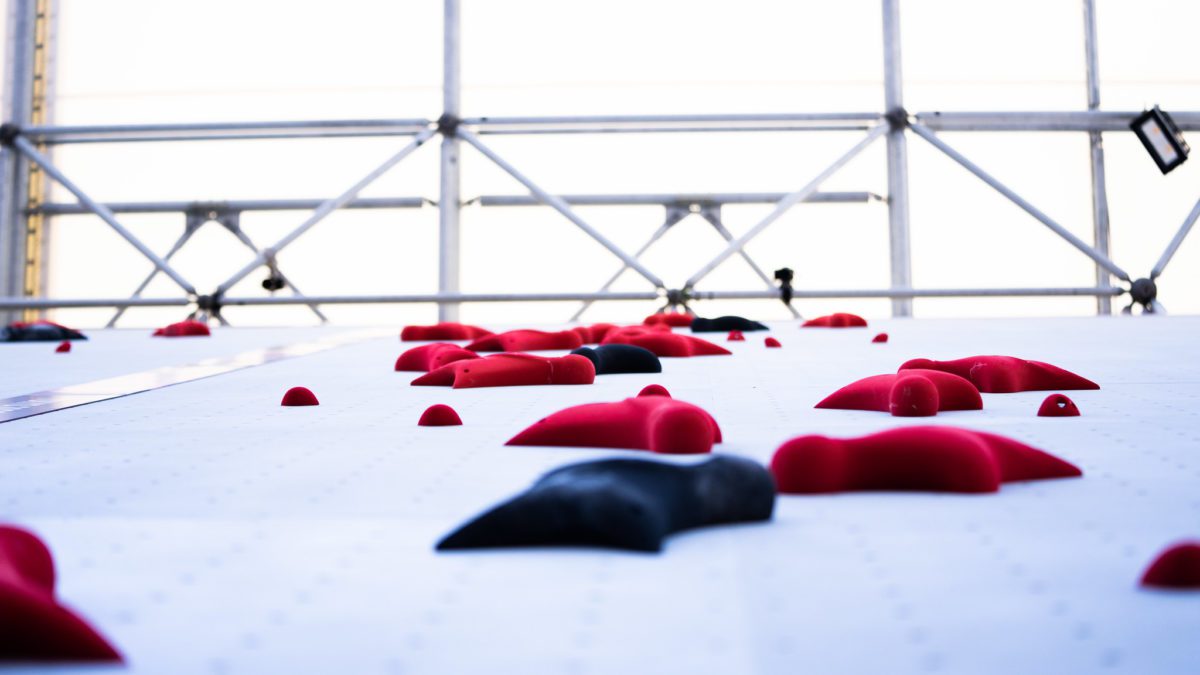
Where the Women have a clear cut favourite, the Men’s field offers opportunity for a few possibilities for the Olympic podium.
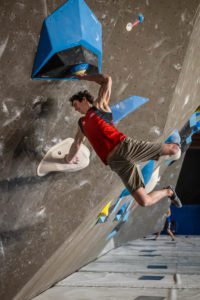
If we make podium projections off of the 2021 World Cup season, the three contestants for gold reduce to the Czech Republic’s Adam Ondra, Japan’s Tomoa Narasaki, and Austria’s Jakob Schubert.
Adam Ondra
This 28-year-old rock prodigy from the Czech Republic has made headlines in climbing for over a decade. At three years old, he would begin climbing, onsiting 5.12c by the age of eight. He would become the first person to climb both 5.15c and 5.15d, as well as the first person to flash 5.15a.
Furthermore, Ondra would go onto flash Jade, a difficult V14 in Colorado. He trains unlike most anyone in the world and has a single-minded determination that has brought him up most of the world’s hardest routes. In Canada, he would make the first ascent of Disbelief, a route that may not see a second ascent for another decade.
In terms of competition climbing, Ondra has become a perfectionist. After an unlucky competition in Hachioji, Ondra would establish himself as a leading contender for the 2021 Olympic gold. Ondra would make Finals in each of the three World Cups he participated in. He would win Boulder both in Meiringen and Salt Lake City. Conversely, he would slip on Lead at Innsbruck falling to eighth position. Since then, he has not competed.
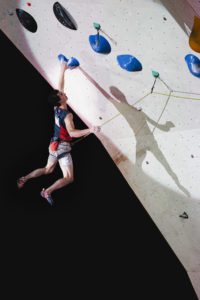
Tomoa Narasaki
Where Ondra has experience on the rock, Narasaki has experience in competition. Although both competitors have impressive World Cup records, Narasaki’s win in the 2019 Bouldering Championships as well as the 2019 Combined Championships in Hachjioji speak well toward his ability to crush in the Olympic Games. Beyond that, he too has flashed V14, climbing Decided in a single try.
Although the Olympic Games will require athletes to compete well in their strengths, proficiency in a weakness can give an athlete an edge. Where Ondra’s best competition Speed time hovers around 7.46 seconds, Narasaki recently set the Japanese record with a blistering 5.73 seconds. This beats the 2019 World Speed Climbing Champion Ludovico Fossali’s best time of 5.78 seconds. Of the qualified Olympians, it is second only to Bassa Mawem’s 5.52 seconds.
Such a result means that Narasaki could win Speed. The head-to-head format only asks competitors to beat their opponents and does not require the winner to be the climber with the fastest time of the Finalists. Should Narasaki win Speed, it will become difficult for Ondra to win the competition.
Even if Ondra beats Narasaki in Lead and Boulder, Narasaki has a strong chance of taking second in at least boulder and possibly lead. If Narasaki did take second in these disciplines, and took first in speed, he would beat Ondra. Ondra’s Speed time will likely rank lower than all other Finalists.
Although Narasaki did not win his World Cups this season, he performed well. In Salt Lake, he finished the competition with bronze and became the best ranked Olympian at that competition. Similarly, at Innsbruck, he missed out on gold to his non-olympic teammate Yoshiyuki Ogata. Narasaki would take silver. In Lead, that same week, Narasaki would miss Finals by one position. He finished the competition a single place behind Ondra.

Jakob Schubert
Although Ondra and Narasaki seem insurmountable, both athletes have made mistakes this season. Experience can have great value in a competition like this. Neither athlete has quite as much experience as Austria’s Jakob Schubert.
Including his youth career, the 30-year-old Austrian has more World Cup titles and World Championship titles than Ondra and Narasaki combined. Although he does not have as much strength as either, he seems to compete near the top of his ability. Although he had a tough time in Meiringen, Schubert would return to form in the second World Cup of the season.
He would compete again at the Innsbruck World Cup taking gold in Lead and 14 in Boulder. For Schubert, it seems as though his result depends heavily on whether or not he fits the problems and routes in the Qualification and Final rounds. Like Ondra, Schubert does not have a proficiency for Speed. This, in addition to his relative inconsistency, suggests that Schubert would need a lot to go right to win gold. By contrast, Narasaki and Ondra need only to maintain their consistent results.
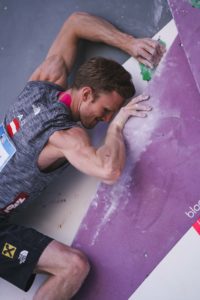
Dark Horse – Jongwon Chon
Although Jongwon Chon has somewhat drifted away from the limelight he achieved in 2017, his appointment to his Olympic position by the Tripartite Commission seems more than reasonable. The ludicrously strong Korean came 20 in Hachioji, but despite this fact could perform well in Tokyo. His Boulder results always place well, while his Speed continues to improve.
On a recent Instagram post in April, he said, “Break PB every speed session.” He ran a 6.0 second run. Presuming he has made any improvement on that, he should have enough strength to make Finals. The big issue for Chon comes down to Lead. His Lead results always pale in comparison to his strength in Boulder. Still, he took second in the 2018 Combined World Championships.
Considering that the lead route should favour a more powerful style of climbing than it used to in the past, Chon has a real chance of making the podium.
Projected Results:
- Tomoa Narasaki (JPN)
- Adam Ondra (CZE)
- Jakob Schubert (AUT)
Alternates
- Jongwon Chon (KOR)
